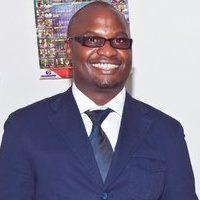New Report: Towards a New Republic of Sudan
Jon Temin and Theodore Murphy
Lost in the recent focus on the violence in Abyei and Southern Kordofan, and before that the euphoria surrounding the January referendum, is one of the most important questions concerning Sudan today: what will the future Republic of Sudan (northern Sudan) look like?
In a new report published by the United States Institute of Peace [link to http://www.usip.org/publications/toward-new-republic-sudan], we seek to focus attention on the future Republic of Sudan as a whole. Too often, we argue, Sudan’s issues are fragmented and addressed in a piecemeal fashion, which distracts from a focus on the driving force behind so much of Sudan’s instability: decades of poor governance and an inability (or unwillingness) to manage Sudan’s considerable diversity. Other recent analyses make similar points: a recent International Crisis Group report highlights “the cardinal issue of governance,” [link to http://www.crisisgroup.org/en/regions/africa/horn-of-africa/sudan/174-divisions-in-sudans-ruling-party-and-the-threat-to-the-countrys-future-stability.aspx] and Andrew Natsios discusses Sudan’s “larger pathologies.” [link to http://www.foreignaffairs.com/articles/67869/andrew-s-natsios/sudan-back-on-the-brink] Previously, the report of the African Union Panel on Darfur highlighted Sudan’s governance failures in its discussion of the “Sudan problem in Darfur.” [link to http://www.scribd.com/doc/21963057/AUPD-Final-Report-on-Darfur]
Ongoing political processes in Sudan – most notably the Darfur negotiations and popular consultations in Southern Kordofan and Blue Nile states – continue this trend. Regionally-based processes produce regional agreements (evidenced by the Comprehensive Peace Agreement and all its regional protocols, the Darfur Peace Agreement and the Eastern Sudan Peace Agreement). One problem is that the reflexive instinct to respond to every crisis on Sudan’s periphery distracts from the necessary holistic conversation about improving governance throughout Sudan, be it through more robust federalism, reforms at the center, or other means. Without this the cycle of regional conflicts is doomed to repeat itself.
We argue that the future Republic of Sudan requires a new political compact between its people and its government, between the center and the periphery. That compact can be formalized through the process of developing a new constitution. The ongoing regional political processes should continue, but the issues they encompass should be divided into two levels: those that are truly regional in character, and those that are relevant to more national-level debates, such as power and wealth sharing and degrees of autonomy. The regional processes should address the former set of issues, but the latter set should ultimately be negotiated through a national process that is participatory, inclusive and transparent.
Whether the current Sudanese government can be convinced of the merits of such a national process remains an open question. Recent events which suggest that hard-line elements within the National Congress Party (NCP) are on the rise are not encouraging. But the NCP also faces a daunting set of pressures, including political blowback for presiding over the division of the country, economic decline due to lost oil revenue, inflation and corruption, and the specter of the Arab Spring revolts that have engulfed two of Sudan’s neighbors. A critical question going forward may be whether the future Republic of Sudan can afford not to reform.






